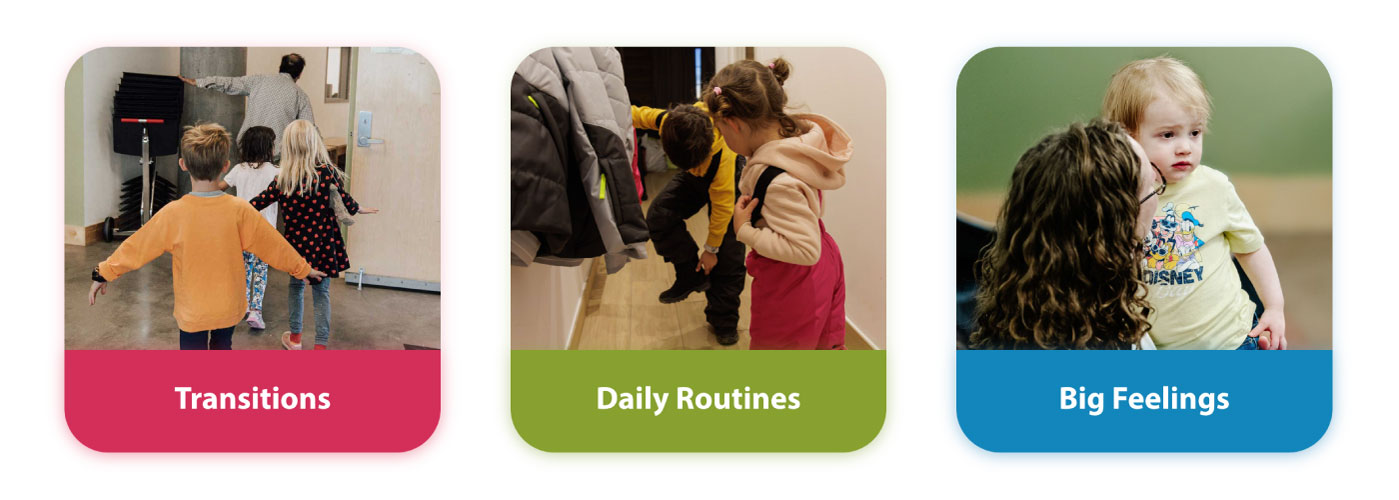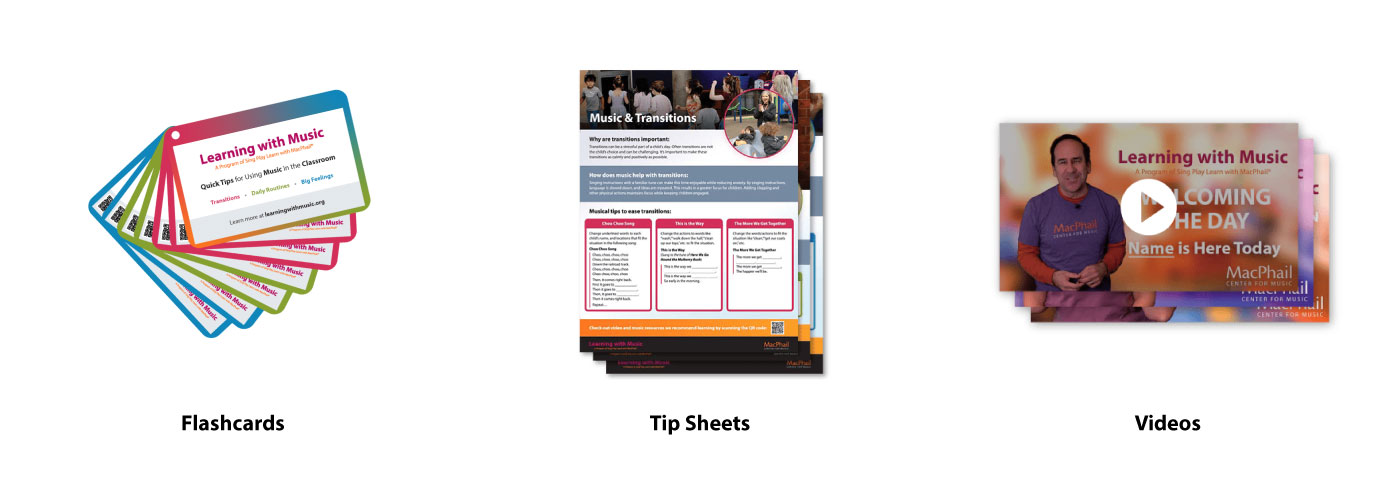MacPhail Launches New, No-cost “Learning with Music” Resources – May 1, 2025

This month, MacPhail Center for Music will introduce new, evidence-based music resources to help early childhood educators promote school readiness and self-regulation. Educators can access “Learning with Music” resources at no cost to seamlessly incorporate music into daily classroom activities, no matter the musical background or abilities of the teacher.
The innovative resources are available at https://learningwithmusic.org/.
“Nurturing children’s musical abilities and understanding helps them develop essential skills such as self-regulation, emotional intelligence, and a lifelong love of learning,” says Dianna Babcock, director of Sing Play Learn with MacPhail®, the organization’s early childhood program. “The Learning with Music resources help with transitions, daily routines, and big feelings – topics every early childhood educator manages in a typical day.”
Learning with Music was launched in 2004. In 2013, MacPhail engaged Dr. Eleanor Brown from West Chester University in Philadelphia, PA, to conduct formal research of the program. Data was collected from 2013-2018 from four early education centers, which were selected on the basis of demographics, geography, curriculum, quality of programming, and agreement to participate fully in data collection. The findings were published in 2022 in the Early Childhood Research Quarterly. Researchers found that children receiving MacPhail’s Learning with Music program showed 150% greater growth across the year in inhibitory control compared to peers who were not in the program. Inhibitory control is the ability to regulate behavioral/emotional responses. The research provided evidence that high-quality music interventions can promote a child’s self-regulatory development across a year of attendance.
The new Learning with Music resources are organized around three major topics:

- Transitions are times when children move from one situation or activity to another. Because children are not always in control of transitions and sometimes they are not ready or willing to transition when asked, these transitions can be a stressful part of a child’s day. Using music to cue a transition can give a predictable signal that a change is going to happen. Describing the transition through music or song can help refocus and add a joyful calm to the situation.
- Daily routines are repeated tasks and events that happen throughout the day, such as washing hands, eating lunch, and cleaning up toys. Adding music to daily routines helps provide a rhythmic and predictable structure to repeated tasks and can help keep the day running smoothly. Children can build independence and confidence while following the daily routines through musical play.
- Big feelings are strong emotions shared when a child becomes overwhelmed and feelings burst. Most children will need support to regulate these strong emotions so they can refocus, problem-solve, and become calm. Music can help to deescalate these big feelings by creating a safe, rhythmic experience to ground and regulate one’s mood, build positive connections with others, and bring an element of calm playfulness. Singing about feelings helps to identify and learn about emotions and creates an opportunity to reset these strong feelings.

The Learning with Music resources include: 1) Flashcards that provide rapid access to musical tips to help with transitions, daily routines, and big feelings. Flashcards can be worn on a lanyard so when a classroom challenge arises, teachers can scan a QR code to get quick musical ideas; 2) Tipsheets that complement flashcards by providing in-depth ideas to use music to support young children’s learning and development; 3) Videos that feature the songs on tip sheets and flashcards. Teachers can listen to the songs and learn how to adapt the lyrics of familiar tunes to aid in daily routines, transitions, and big feelings.
“As the nation’s largest community music school and an important resource for our local community, we believe it is our responsibility to share our knowledge about the transformational power of music,” says Babcock. “We hope teachers here and afar will use Learning with Music resources to have a positive impact on the lives of children.”
Learning with Music is partially funded by a grant from the Minnesota Department of Education, and by the voters of Minnesota through a Minnesota State Arts Board Operating Support grant, thanks to a legislative appropriation from the Arts and Cultural Heritage Fund. The program also receives valuable research support from West Chester University.
